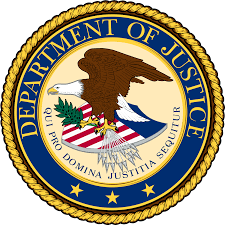Robbie Robertson died this week. He was the lead songwriter and one of the five members of a rock and roll group that was so impactful, it was simply known as The Band. Robertson came from Canada but wrote in a genre which is now called ‘Americana’. He had one of the sharpest senses for songwriting I fhave ever seen or more appropriately heard. According to his New York Times (NYT) obituary, “wrote for the Band used enigmatic lyrics to evoke a hard and colorful America of yore. With uncommon conviction, they conjured a wild place, often centered in the South, peopled by rough-hewed characters, from the defeated Confederate soldier in “The Night They Drove Old Dixie Down” to the tough union worker of “King Harvest Has Surely Come” to the shady creatures in “Life Is a Carnival.””
Robertson himself said of his musical writing, in a 1995 interview for the public television series “Shakespeare in the Alley”, “I wanted to write music that felt like it could’ve been written 50 years ago, tomorrow, yesterday — that had this lost-in-time quality. We just went completely left when everyone else went right.”
We recently saw the release of one of the most significant decisions ever involving internal investigations in the Foreign Corrupt Practices Act (FCPA) arena, that in the case of US v. Coburn and Schwartz or more colloquially known and the Cognizant investigation decision as it came from FCPA declination awarded to the company Cognizant Technologies even with allegations of Chief Executive Officer (CEO) and General Counsel (GC) involvement in the bribery scheme.
One of the central themes emphasized by the court’s decision is the significance of independence in company investigations. The reason is that if a company or their outside counsel act as a proxy for the government can compromise the integrity of the investigation process. Indeed the defendants in this criminal action wanted the entire investigation and everything that flowed from it thrown out of court in their criminal case. In its decision, the court firmly established the need for companies to maintain independent decision-making and avoid being coerced or directed by the government. This highlights the importance of conducting thorough and unbiased internal investigations.
The underlying Cognizant Technologies case was extremely significant under what was then the FCPA Pilot program as the company was able to obtain a Declination even with alleged C-Suite involvement. This decision turned many heads in the compliance arena and this procedural decision demonstrates importance of self-disclosure by companies before the involvement of the Department of Justice (DOJ). In the case discussed, Cognizant’s board became aware of bribery and corruption allegations and promptly made a self-disclosure to the DOJ. This proactive step demonstrates the value of companies taking responsibility and initiating the investigation process themselves. It also aligns with the FCPA corporate enforcement policy, which encourages extensive cooperation.
The Timeline on the claims that the DOJ directed this investigation are significant. From the Order it states
On August 20, 2016 Cognizant’s outside counsel DLA Piper interviewed Srimanikandan Ramamoorthy, Cognizant’s Vice President of Administration. He stated that Cognizant’s General Counsel, Steven Schwartz, and its President, Gordon Coburn, authorized a $2.5 million payment to Indian officials to obtain a planning permit for a Cognizant facility in Chennai. Schwartz and Coburn were immediately removed from all aspects of DLA’s pending internal investigation.
Cognizant insisted that Schwartz and Coburn cooperate with the internal investigation, in particular by submitting to interviews.
On August 28, 2016, DLA conducted its first interview with Schwartz. The DLA attorneys who interviewed Schwartz, including Buch, set and enforced strict ground rules for the interview, including prohibiting Schwartz from having more than one lawyer present and not allowing that lawyer to take notes or ask questions.
Coburn was also interviewed by DLA in August 2016 but did not have a lawyer present.
On September 1, 2016, DLA contacted an attorney at the DOJ. During a meeting on the following day, DLA self- disclosed, on behalf of Cognizant, Cognizant’s potential FCPA violations. DLA also informed the Government of the company’s intention to “fully cooperate with the DOJ and the SEC” and asked that Cognizant “be considered for inclusion in the FCPA Pilot Program.” DLA had engaged in no contact with the Government on behalf of Cognizant prior to those communications.
So clearly there was a decision to self-disclose after the defendants were interviewed. This means the DOJ could not have directed the investigation. But there were several points that bear consideration for the court’s Order.
A crucial aspect highlighted by the court’s Order is the need for companies to document investigations thoroughly. This includes justifying decisions made during the investigation and building a fully documented record to address potential legal challenges or claims. Additionally, fair employee interviews play a significant role in the investigation process. The court’s opinion raises concerns about restrictions placed on employee interviews, such as not allowing note-taking. Companies should ensure that employees have proper legal representation and are given a clear choice while respecting the need for confidentiality.
The court’s decision emphasizes the importance of a fully developed record, which serves as a roadmap for conducting investigations. In complex investigations with a vast amount of information, maintaining a comprehensive record can be challenging. However, it is essential to meet this challenge head-on. A systematic approach, including investigative planning, document review, and retention, is crucial. This not only helps defend against potential challenges from the DOJ or individual prosecutions but also provides a solid foundation for shareholders and other stakeholders.
The recent district court decision has far-reaching implications for companies conducting internal investigations in FCPA cases. By emphasizing the need for independence, self-disclosure, and robust record-keeping, the court has set a standard for future investigations. Companies must take note of these practical insights and data-driven recommendations to navigate the complex landscape of FCPA cases successfully. By doing so, they can ensure compliance, protect their interests, and maintain the integrity of their internal investigations.



